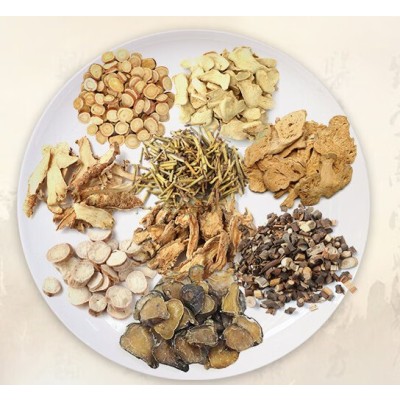Rheumatoid Arthritis Patients' Daily Precautions
Rheumatoid Arthritis Patients' Daily Precautions

(1) Emotions: 2/3 of patients experience aggravated symptoms under mental stress. Therefore, patients should maintain optimism and cheerfulness, avoiding anxiety, fear, pessimism, and melancholy. Learn self-regulation, broaden your mind, enhance confidence in overcoming pain, and establish the belief in overcoming the disease.
(2) Diet: Consume high-protein, nutritious foods such as meat and fish. Eat plenty of fruits and vegetables, drink milk to supplement calcium intake, and maintain a balanced nutritional intake. Avoid alcohol. Refrain from consuming high-fat foods (such as fatty meats), and minimize oil when cooking. Avoid excessive consumption of animal organs and seafood, as they might worsen joint symptoms. Reduce intake of highly acidic and salty foods. Limit consumption of highly stimulating foods (such as chili). Avoid excessive sugar intake.
(3)Clothing and Movement: Choose comfortable, lightweight, and easy-to-wear clothes. Wear long-sleeved shirts and pants to bed in summer. Avoid bamboo mats and beds. In winter, wear warm and lightweight clothes and choose light and soft shoes. Use elastic bands instead of tight shoelaces. During joint pain, besides taking medication, apply heat and local massage. Avoid direct skin contact during heating to prevent damage. 90% of patients are sensitive to weather changes. Joint swelling and pain can worsen in overcast, rainy, cold, and humid weather. Therefore, pay special attention to staying warm and dry during seasonal transitions (between autumn and winter, spring, and summer). Avoid outdoor activities on cloudy, rainy days. Do not lie down in the wind or use fans directly during sleep. Protect joint areas with sleeves to avoid direct wind exposure. Bed height should be appropriate for easy access. Place a chair by the bed to assist in getting up. When resting in bed, the pillow should not be too high. Avoid soft mattresses, and do not use a pillow under the knees to prevent deformities in the hip and knee joints. Toilets can be fitted with plastic seat pads of a certain height and equipped with handrails. It's preferable to sit on a stool for showering instead of using a bathtub. Adjust tables and desks to the appropriate height and use chairs that support the back and are not too soft or low.

(4) Sunbathing: On windless and sunny days, it's advisable to sunbathe outdoors. Choose locations with fresh and unpolluted air such as grasslands, parks, riverbanks, and beaches. Before sunbathing, spend 5-10 minutes in a shaded area for fresh air exposure to acclimate to outdoor temperatures. Ideally, choose between 9:00-11:00 am or 3:00-5:00 pm. In summer, mornings are preferable, while afternoons are better in winter. Avoid sunbathing on an empty stomach or immediately after meals; waiting for about 1 hour after eating is ideal. Start with 5 minutes of sun exposure daily in summer, then increase by 3-5 minutes each day until reaching 30 minutes. If there are no adverse reactions, increase by 5 minutes every other day until reaching 60 minutes daily. Sunbathing time can be extended in winter. Sunlight is stronger at higher altitudes, but patients with active pulmonary tuberculosis, heart failure, and febrile diseases should avoid it. If general discomfort, fatigue, insomnia, loss of appetite, or skin redness occurs during sunbathing, it should be suspended. Reading during sunbathing should be avoided to prevent eye strain.
(5) Pregnancy: It's best to conceive during a stable period of the disease and discontinue relevant medications for at least six months. Nonsteroidal anti-inflammatory drugs (NSAIDs) should be strictly avoided during the first three months of pregnancy and in the late stages. Traditional Chinese medicine is recommended for treatment, as it not only alleviates pain but also ensures the safety of the fetus.
(6) Exercise: Exercise should be gradual, stopping at the point where pain is triggered. Warm-up is necessary before exercising, and the exercise routine should be varied. Initially, simple functional exercises like rehabilitation exercises are suitable, gradually increasing the intensity later. Individuals should choose exercises based on their own conditions. Exercising in warm water can reduce joint pain and promote muscle relaxation. Within one's physical limits, work can be continued.
(7) Medication: Medication should be taken regularly, and self-adjustment, changing, adding, or reducing medication should be avoided. It's essential to understand the adverse reactions of anti-inflammatory drugs. As a traditional Chinese medicine practitioner, I recommend using Chinese herbal medicine for treatment. It not only alleviates pain and treats the disease but also regulates the body, enhances organ function, and delays aging.



